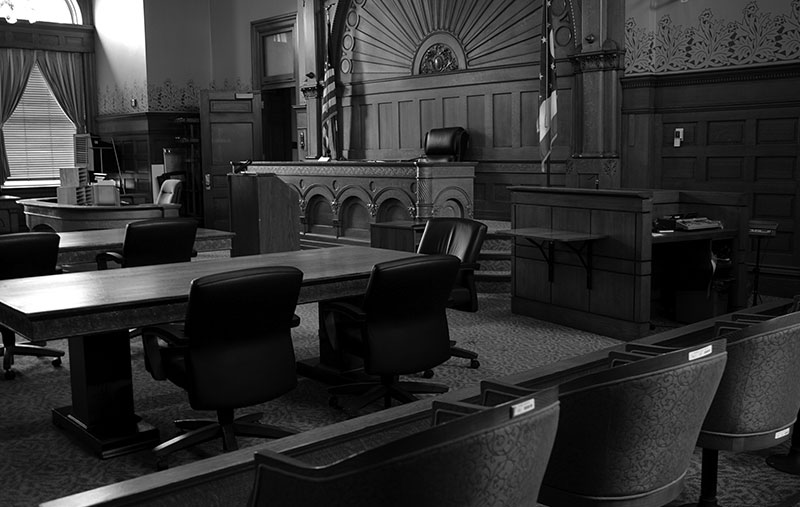New Battlefront on Drug War: Washington State’s Drug Possession Law Is Now Unconstitutional
On 25th February 2021, the Washington State Supreme Court declared the law criminalizing “unknown possession” of controlled substances unconstitutional. This decision aligns the state of Washington with 49 others that have taken similar measures in the past.
The decriminalization of possession of controlled drugs follows the decision in the State V. Blake case whose circumstances led to the striking down of the strict liability drug possession law.
State of Washington V. Shannon Blake
In the execution of a search warrant, looking for evidence of stolen vehicles, in Spokane, Washington, police officers arrested Shannon Blake. At the booking stage, the officers discovered that the coin pocket of Blake’s jeans had a bag of methamphetamine.
Blake denied any knowledge of the substance. She alleged that a friend had gifted her the jeans two days prior. She went further to state that her friend had procured the jeans from a second-hand store.
Nevertheless, this was a violation of RCW 69.50.4013, and the state charged her with possession of a controlled substance.
At trial, it was upon Blake to demonstrate that the substances weren’t hers. According to Washington’s drug possession statute, you don’t have to possess a controlled substance knowingly in order to be charged. The onus is on you to prove your innocence.
According to Richard Lechich, Shannon Blake’s attorney, the law was unconstitutional as it required his client to prove her innocence instead of the prosecutor proving her guilt.
Lechich argued that the court should interpret the law in a manner that puts the onus on the state prosecutor to prove that the accused knowingly and intentionally possessed controlled substances.
He argued that failure to interpret the law this way goes against the constitutional tenet that a person is presumed innocent until proven guilty.
The court’s decision
The Washington State Supreme Court struck down the statute hence making it lawful to possess a controlled substance in Washington. The main focus of the court was the lack of criminal intent in Blake’s case.
Unlike other drug statutes in the US, the court observed that this one risked punishing people for innocent or unwitting conduct. This law didn’t require the prosecutor to prove criminal intent; hence it is unconstitutional on its face.
Lack of criminal intent cannot attract severe penalties.
The state failed to prove criminal intent in Shannon Blake’s case. All that the prosecutor confirmed is that Blake wore jeans that had pockets. Sadly she was subject to a harsh punishment of $10000 fine and up to five years imprisonment.
The court generally argued that both federal and state constitutions allow for due processes during prosecutions. The due process clause protection prevents the state legislature from taking passive and innocent acts (that lack criminal intent) and punishing them as serious crimes.
What does this mean?
Enormous fallout is now imminent in Washington’s criminal legal system. With the statute’s invalidation, defendants awaiting trial for strict liability possession charges will have those charges dropped immediately.
If a person is already in jail, having been convicted for possessing drugs, they should be set free immediately. It’s because they’re in prison for a crime that no longer exists. The criminal code no longer defines such acts as crimes hence invalidating judgments and sentences whose basis was on the innocent possession. However, any affected person must file a post-conviction motion in order to be released.
Although a person imprisoned for some other offense and possession may not be set free, they are eligible for a reduced sentence now that the supreme court has invalidated one of their charges.
Blake’s ruling will also affect some people serving sentences for new and unrelated charges. Prior drug possession convictions typically make the jury pass harsher penalties for new convictions. Now that their possession conviction is invalid, this category of convicts can motion the trial court and ask for a reduced sentence.
Important limitations
While substances such as heroin, methamphetamine, fentanyl, or cocaine are now legal in
The decision in State V. Blake only applies to simple possession. It doesn’t extend to the manufacture or supply, or delivery of a controlled substance. Moreover, the decision only applies to convictions that took place in Washington and under Washington state law. Convictions that occurred under the federal regulations in federal courts are still valid.
What’s next?
While convictions for simple possessions of controlled substances are now unconstitutional in Washington, it won’t lead to automatic and immediate vacation or dismissal of possession convictions. The Washington State legislature is already working to correct the unconstitutional nature of the statute and to once again make possession illegal under state law.
You will need help to file the correct paperwork to have your possession conviction vacated and dismissed. Moreover, maneuvering through the legal system is often complicated. The ongoing COVID-19 pandemic has made court processes even harder to navigate.
Get in touch with Vindicate Law if your loved one requires reputable and reliable legal representation for drug-related charges or expungement of past convictions to clear your record.

